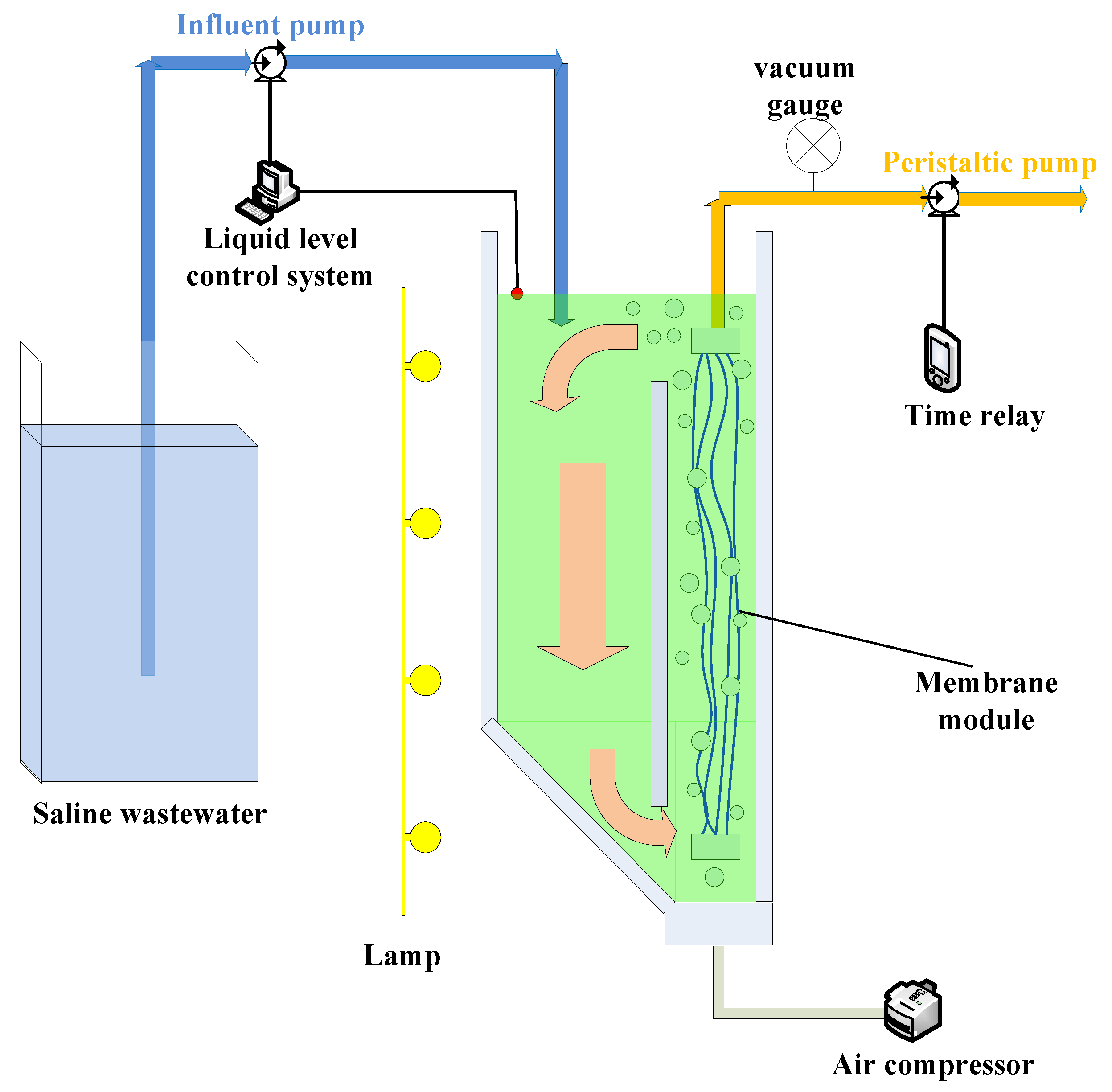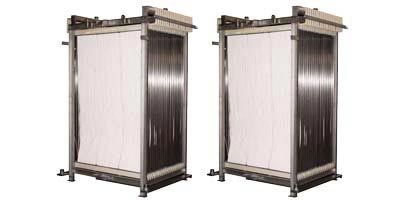How Membrane Bioreactors Are Reinventing Water Filtration Systems
The emergence of membrane layer bioreactors (MBRs) represents a significant development in the area of water purification, merging biological treatment procedures with sophisticated membrane purification innovations. This combination not only boosts the top quality of treated effluent however likewise addresses urban area restraints, making MBRs especially suitable for densely populated areas. As international water shortage increases, the duty of MBRs in assisting in potable water reuse and lasting water monitoring becomes significantly vital. The effects of this technology extend beyond efficiency-- what challenges and chances exist ahead for its extensive execution?
Overview of Membrane Bioreactors
Membrane layer bioreactors (MBRs) represent a considerable innovation in water filtration innovation, as they incorporate organic treatment procedures with membrane layer filtering. This integration improves the effectiveness of wastewater therapy by utilizing bacteria to degrade natural pollutants while at the same time employing semi-permeable membrane layers to different treated water from suspended solids and pathogens.
The MBR system usually contains a biological reactor where the microbial populace metabolizes pollutants, followed by a membrane filtration unit that preserves biomass and enables only tidy water to go through. This dual performance results in greater effluent top quality compared to standard therapy approaches. MBRs can be operated in both batch and continuous flow modes, offering adaptability in layout and application.
They likewise enable the healing of water for reuse, hence adding to water sustainability initiatives. In general, MBRs are at the forefront of boosting water therapy performance and quality, showcasing the possibility for ingenious solutions in ecological administration.
Advantages of MBR Innovation
The integration of biological therapy with membrane filtering offers countless advantages for water filtration procedures. Among the primary advantages of Membrane Bioreactor (MBR) modern technology is its capacity to effectively eliminate both organic and not natural impurities, causing high-quality effluent. The membranes serve as a physical barrier, protecting against suspended solids and pathogens from travelling through, which improves the overall security and dependability of treated water.
In addition, MBR systems need a smaller sized impact compared to conventional treatment methods, permitting extra effective area usage. This small layout is particularly advantageous in city settings where land is limited. MBRs additionally demonstrate operational versatility, accommodating varying influent qualities and flow rates without substantial efficiency degradation.
Furthermore, the process offers improved nutrient removal abilities, particularly for nitrogen and phosphorus, which are essential for preventing eutrophication in receiving waters. The lowered sludge production connected with MBR technology additionally equates to lower disposal prices, making it a cost-efficient remedy in the future - Membrane Bioreactor. In general, the benefits of MBR innovation position it as a leading option for innovative and sustainable water filtration systems, attending to both ecological and financial problems
Applications in Water Filtration
Applications of Membrane Bioreactor (MBR) technology in water filtration are diverse and impactful, attending to numerous treatment requires across multiple industries. MBRs efficiently incorporate organic treatment procedures with membrane layer filtration, making them suitable for municipal wastewater treatment, commercial effluent monitoring, and also potable water reuse initiatives.
In local settings, MBRs are increasingly employed to improve the quality of dealt with wastewater, permitting compliance with rigid discharge policies and facilitating the recycling of water for watering and non-potable uses. Their small design also makes them suitable for city atmospheres where area is limited.
Industrially, MBR modern technology is made use of to treat process water and wastewater, especially in industries such as food and drink, drugs, and textiles. By properly getting rid of contaminants and put on hold solids, MBRs help markets minimize environmental impacts while recuperating valuable resources from wastewater streams.
Additionally, MBRs are getting grip in decentralized water treatment applications, where small systems can be released in remote areas or developing regions. This flexibility enables communities to accomplish sustainable water administration great post to read solutions, enhancing access to clean water while minimizing dependence on traditional therapy techniques.
Instance Research Studies and Success Stories

In an additional example, a fabric manufacturing center in Bangladesh embraced MBR modern technology to resolve its wastewater challenges. The system reduced chemical oxygen demand (COD) levels from 1,200 mg/L to much less than 100 mg/L, thus fulfilling governing criteria and dramatically reducing environmental influence.
The College of Cape Town's MBR installation has actually confirmed reliable in dealing with greywater for non-potable reuse on campus. This job not just preserves drinkable water however also serves as an top article instructional model for lasting techniques.
In addition, a fish and shellfish processing plant in Norway made use of MBR technology to treat effluents including high degrees of natural issue, accomplishing over 90% contaminant removal. These situation studies emphasize MBR innovation's convenience and its crucial role in boosting water top quality across varied applications.
Future of Water Therapy Solutions
As international water deficiency and contamination difficulties increase, ingenious water treatment solutions are ending up being progressively important to make sure sustainable access to clean water. The future of water treatment depends on the combination of innovative technologies that enhance the performance and efficiency of purification processes. Membrane bioreactors (MBRs) go to the forefront of this evolution, combining biological therapy with membrane layer filtration to create premium effluent suitable for different applications.

Arising fads such helpful resources as resource recovery from wastewater, consisting of nutrients and power, will further change treatment centers right into environmentally friendly centers. Additionally, improvements in nanotechnology and membrane products guarantee boosted performance and durability of filtering systems.

Verdict
Their function in safe and clean water reuse and lasting water monitoring highlights their relevance in addressing worldwide water shortage difficulties. Continued research study and growth will better improve the effectiveness and adoption of MBR innovation, making sure a resilient future for water therapy solutions.
The emergence of membrane layer bioreactors (MBRs) stands for a considerable advancement in the area of water purification, merging biological treatment procedures with cutting-edge membrane filtering innovations. As global water deficiency escalates, the role of MBRs in facilitating safe and clean water reuse and sustainable water monitoring ends up being significantly critical. They also enable the recovery of water for reuse, thus contributing to water sustainability initiatives.As international water scarcity and pollution difficulties magnify, ingenious water treatment services are becoming significantly crucial to ensure sustainable accessibility to clean water. Their role in safe and clean water reuse and sustainable water administration highlights their relevance in dealing with international water deficiency obstacles.